Charles Pakana (Victorian Aboriginal News)
Over the next several months, we’ll be talking with a lot of Victorian Traditional Owners here on the VAN Talks podcast about what reconciliation, substantive reconciliation means to them and what they believe the rest of Victoria, everybody in Victoria should be doing or could be doing for the cause of reconciliation.
And joining me today for the first of these yarns, I’m really thrilled to introduce a personal friend of mine, someone who’s been kind enough to have a number of very deep and meaningful yarns with me over the years, Wotjobaluk Elder Aunty Janine Coombs, Aunty Janine, welcome to the podcast and thanks for joining me today.
Aunty Janine Coombs
Thank you, Charles.
Charles
So what does reconciliation mean to you?
Janine
Potential for a positive future for our future generations?
Charles
When you say future generations, are you talking black or white or all?
Janine
All.
Reconciliation can only occur if there is a shared discussion and a shared understanding. And at the moment, society as a whole has embraced reconciliation. However, it’s a living, breathing thing for there to be truth, Treaty and potentially a Voice. And I know that, you know, that’s fraught with danger.
For all of those things to occur, there needs to be a shared understanding of First Nations history, shared understanding around reconciliation itself, because my interpretation of reconciliation might be completely different to the next person that you interview.
Charles
Well, what is your interpretation of reconciliation? In broad brushstrokes, without getting down to the nitty gritty?
Janine
True, substantive reconciliation is ensuring for me that my children, my grandsons and my future grandchildren aren’t racially profiled. Aren’t questioned about their ethnicity, that they are culturally strong, that they have an understanding of who their mobs are. And those understandings and learnings are appreciated by the broader community.
Charles
Right. So when you’re talking about, appreciated by the broader community, what you’re actually making mention of there is reconciliation as it affects directly, your children and your grandchildren. But how do you see reconciliation potentially impacting on all of Victoria or all of Australia?
Janine
Good reconciliation if you were to look at it from a corporate perspective?
Charles
Yeah, I think that’s an important thing. We need to. So let’s focus on that for a bit.
Janine
There are a number of corporate entities that have started on their reconciliation journey and they’re all at varying stages and reconciliation and ensuring that these corporate entities start to understand and to utilise what Traditional Owners here in Victoria.
Because I won’t talk about Australia because that’s not my Country, but for them to understand the services, the connection, the differing communities within those corporate entities, whether it’s energy Australia that’s got electricity base or a power and gas base down on Gunai Kurnai Country, or whether it’s someone like Melbourne University having something on Yorta Yorta country. It’s understanding the communities where their businesses sit and starting a discussion and relationship with the local Traditional Owner corporation and all their communities.
Charles
Now, this is important. Discussion and relationship. Let’s be really frank. A lot of organisations and individuals are almost scared to approach the local Aboriginal people because simply, they don’t know what to say, they don’t know what to do. Let’s just step back to that point for a second. Let’s say you’ve got an organisation up there on Yorta Yorta country or down on Gunai Kernai country. What do they do? Do they just pick up the phone and say, g’day, this is who we are. We need to sit down and talk with you. We want to sit down and talk with you. Can it really be that simple?
Janine
Potentially it could be, but then there is also that conversation. And you’re well aware of this, Charles, throughout the last at least ten years, I’ve had a lot of conversations with a lot of non Aboriginal people that say, oh, it’s very nice to meet you. Rah. Rah. Rah. Rah, rah. Oh, and I have so many questions, but I really don’t want to offend you. My response has always been, I’ve probably heard it before. Thank you for giving me a heads up. I’ve braced myself, ask me the question.
I would prefer to answer the questions that they have, than them walking away being too scared to ask. How do we move that forward to the broader corporate world? I honestly don’t know, but it’s something that I think for true reconciliation. I think that’s something that is the forefront for me, anyway, that needs to be addressed. Like, how do you have those conversations?
Charles
Well, let me ask you this, then, and we’ll talk about it from a respect perspective. Now, as a Oraditional owner, let’s say you were talking on behalf of your TO group right? Now. Let’s say, for example, there’s a large corporate that’s looking to set up an operation on Wotjobaluk country and they wanted to set up a relationship and dialogue with the Wotjobaluk people.
How would it be received for the CEO of that organisation, not one of the lackeys in the organisation, but the CEO of that organisation, to pick up the phone himself or herself and actually try to speak to the chairman or the CEO of the TO group? Do you think that’s the first sign, that sign of respect of putting away that old colonial perspective of let’s just get my PA to make the phone calls and I’ll just come in there for the guts and the glory of it.
Janine
Yeah, or even an email works just as well as picking up the phone. But my personal opinion is that if you want to engage with any Traditional Owner group, if they’ve got a Traditional Owner Corporation, you either send an email with a follow up phone call or vice versa.
Charles
Now should it be from the CEO of the organisation?
Janine
Good God, yes. And one would hope, and this is another one of my experiences in that I think it should be the CEO for that first meeting. Let’s play hypothetically for that first meeting. I actually think that there needs to be not just the CEO, but maybe, for example, if there’s a social impact department, of course this corporate entity that we’re talking about, that they’re actually a part of that first meeting.
Because one of the things that I have found over the years is it’s respectful and it’s the right thing to have the CEO at the table. However, not a lot of the messaging doesn’t sort of trickle down to the executive, the management and the feet on the ground. So there’s a breakdown in communication from the top to the bottom. So even though the CEO might be like, oh my god, look at me, aren’t I deadly? I met with them TO fellas. And you know, we’re meeting again next month. But if that information and messaging is not trickling down through the tier of that corporate entity, then how do people learn?
Charles
Well, this is very much going along the argument that reconciliation at a corporate level really has to embrace and be embodied within every aspect of that corporation, from the lowliest foot soldier up to the CEO general.
Janine
Oh, agreed, 100%. How else are you supposed to start the conversation? Because it’s like I said, it’s all well and good and very respectful that your CEO’s turned up. But if the messaging and information isn’t being received from the foot soldiers, then it’s a missed opportunity and that always has the potential for misinformation to start occurring.
Charles
So really we’ve established that reconciliation must be at least at a corporate level, has to at least be initiated at some level between the highest levels of the organisation, but needs to be embodied within the entire organisation itself. But what are some of the things that an organisation could be doing? Now you mentioned before this interview that you were an external component of a very high profile organisation’s Reconciliation Action Plan working group. So what are some of the things that you advocate for with that organisation, for its reconciliation work.
Janine
Well, first and foremost, it’s always been, any questions that you have that you deem might be insensitive and or difficult, please feel free to ask me, because as I said before, and I’ve said it at these meetings, I’d prefer you walk away with an answer than still being not sure and too scared to ask. So it’s first thing. Second thing is, it’s also an opportunity for this corporate entity to utilise my knowledge and my connections and my cultural understanding.
I might not be able to give permission, let’s say, hypothetically, for Dja Dja Wurrung, but I can certainly put you in contact with somebody that can. So then there’s another link in the chain that they now can start having meaningful conversations with Dja Dja Wurrung, for example.
It’s also about ensuring that they have an understanding of some of the history. They have an understanding of Aboriginal employment, for example, ensuring that whatever is being advertised, wherever it may be, because this is a national company, that they have an opportunity to utilise my social networks to ensure that these positions are actually getting out into communities, so then communities are aware of it. There’s also individual Aboriginal businesses that aren’t always necessarily signed up with, for example, Kinaway.
Charles
Yeah, here in Victoria.
Janine
Here in Victoria. Kiniway is a great company and it does great work, but there are some Aboriginal businesses that aren’t signed up to Kinaway that still would like to earn a buck.
Charles
So now, just for our audience, for those of you who may not know, Kinaway is the Aboriginal Chamber of Commerce that has been operating here quite successfully and doing some great work here in Victoria. And we’ll provide a link to that organisation on our website to accompany this interview with Aunty Janine. I just want to take you back a little bit, Aunt, because you were talking about employment and I know that’s an important issue for you because you want to see, like most of us, gainful employment and appropriate employment for Aboriginal people.
What do you say to those situations, though, where an organisation may simply say, look, let’s allocate x percentage within our organisation to be filled by Aboriginal and Torres Strait Islander people without doing that necessary homework, first of making sure that it’s culturally appropriate and that word, that safe word, a culturally safe environment. It’s an important thing. I know a lot of organisations have actually come a bit of a cropper because they’ve simply said, yep, let’s just chuck an Aboriginal person in there because we can tick a box. What needs to be done before this happens, because employment’s a critical part of reconciliation.
Janine
Oh, it’s huge. What needs to happen? Oh, how long is a piece of string? Bloody long. Okay, well, employment comes down to ensuring that it’s culturally safe and it’s culturally appropriate. I think it comes back to utilising people such as myself. So if a First Nation’s traditional owner bloke applies for a job and he’s like, yep, I am this and this and this. There actually needs to be. And I appreciate this is a very contentious issue because it’s not necessarily all about confirmation of Aboriginality either. It’s…
Charles
We’ll go there in a separate interview, but something we will be chatting about.
Janine
There needs to be a mechanism in place where the potential new employer to be able to reach out to that community, whether it’s a Aboriginal co op or whether it’s a Traditional Owner Corporation that can verify, and I hate using that term because it’s not up to anybody else to verify one’s own community, connection to their community, but in this instance to verify that, yes, they are a Traditional Owner of this particular piece of Country in Victoria.
The only downside to that is I’m very mindful that we have some First Nations people that are still on their journey through Stolen Gen and then what does that then look like moving forward to them? So I don’t want to come across as disrespectful in any way, shape or form because that’s not my intention.
Charles
All right, so if the organisation puts out, yep, we have this identified position here, someone comes forward and says, yep, I’m Aboriginal. What does the organisation do? Do they need to have confirmation this person is Aboriginal? Or let’s be really frank, do they simply accept it on face value? I mean, are there even many situations out there where people are stupid enough to go and try and take an identified position and they’re not Aboriginal?
Janine
Have you not heard about some of the stuff that’s been going on at the different universities?
Charles
I have heard about a scholarship being awarded to an English woman, actually, who has nothing to do with Australia. Yes, I’ve heard the stories. Is that a major concern, though, when it comes to organisations and their reconciliation initiatives?
Janine
Yeah, because at the end of the day, it comes back to mob knowing who you are. And when I say mob, not just speaking personally for myself, it’s not just people knowing me on my Country. Wotjobuluk. But I’ve lived in Melbourne my whole entire life.
Charles
It’s your local mob here in Melbourne.
Janine
So it’s your local mob and having that connection. I was very, very, very fortunate, though. Very fortunate because of my dad’s connections within the Melbourne metro community. And back then it was, you know, you went into community for the first time. It was like, who’s your mother? Who’s your father? And that was your verbal confirmation of Aboriginality. Yeah. And there are some days where it’s just. It was easier back then. And there are times that I miss those days because community looked and felt a little bit different to what it does now.
Charles
But coming back to what you were talking about before, which is ensuring that a position that’s made available for an Aboriginal or Torres Strait Islander person is culturally safe and appropriate, what does that look like?
Janine
I honestly don’t know. I mean, we touched on that English woman that got the scholarship. Yeah. It’s easy enough to say you’re from this mob. And I think because previously there’s never been sort of. Well, not that I’ve heard anyway, any sort of follow up to that. It’s just taken at face value and then the truth always comes out on whatever it is.
And when it does, you know, people ask all these questions, but if there was a mechanism put in place where it was like, something in the selection criteria, like, so tell us about your mob.
Charles
But I’m talking more about Cultural Safety of that employee once they’re in there. Because if you were talking about an organisation which has really no experience in what to expect of having Aboriginal employees, for example, the need for Sorry Business leave, the need to recognise certain days of the year, the need to recognise the connections that people have to their Country, to their community, then it’s almost a culture shock, not just for the employee, but for the employer as well. So it’s got to be more than simply saying, yep, we’ve got these identified positions.
Janine
Oh, yeah. No, most definitely. But I also think too that a lot of corporate entities, that mindset’s changing. So it’s about ensuring. So some of the corporate businesses that I’ve been involved with over the journey, the whole mindset’s changed around exactly those things. Yes, it’s an Aboriginal identified position.
Yes, we’ve got this person. Great. 15 years ago it would have been, I’m sorry, what’s this cultural safety? What is this Sorry Business that you speak of? Whereas nowadays it’s a lot better because there is that level of understanding of what Sorry Days is, what culturally significant days, weeks of the year are important to us as a collective. But again, it will continually improve. The more conversations like this are actually discussed. And when these corporates talk about having an understanding, nine times out of ten they’ve got a Reconciliation Action Plan.
Now, they might be at the bottom or they might be sort of somewhere in the middle and they have either external Traditional Owners or First Nations people as their external member or they have employees that are part of that. Then they bring their own views, opinions and ideas to the table. So then that conversation continues and then it’s shared. One would hope that that’s shared through the different departments and then go so far as a conversation at a kitchen table.
Charles
Well, this brings up an important point and you’ve mentioned it a couple of times, or at least alluded to it, and that is the importance of actually a working group, a Reconciliation Action Plan, working group, an Aboriginal Advisory Committee, whatever it is, but a group of culturally aware Aboriginal and non Aboriginal people who are able to provide that organisation with advice that can set it up for employment, economic participation, for all these things.
You and I have both seen organisations that have gone into doing a reconciliation action plan, even a little reflect one, and just thought, yep, we’re just going to go in there. We don’t need to have Aboriginal or Torres Strait Islander advice. We’ll just go and do it and we’ll just go by the template. You’re shaking your head right there. Okay. Why is that a head shaking from Aunty Janine on that?
Janine
It frustrates the living life out of me, truly.
Charles
Well, you’re being somewhat refrained in saying that.
Janine
…well, this is a podcast I sort of gathered. I’m not allowed to swear on this.
Charles
No, you’re not.
Janine
No, exactly. Hence me being refrained. I have to. What I will say is that unfortunately this happens more times than most and not just within the corporate space. Government agencies do it…
Charles
I know.
Janine
And it begs. You’ve known me long enough, Charles, where it’s just like, I would like to say these. I’m sorry, I forgot you’re a TO, or I forgot you were a First Nations people. How are you, my brother?
Charles
Oh, yeah.
Janine
But number one, well, first and foremost, that just needs to be like, just. No, just crush it, smash it, throw it out. Throw it out the window, what have you. Because at the end of the day, that mentality hurts my heart because, oh, I’m getting emotional. Sorry about that. It hurts my heart because it is times like that that make me worry and frustrate and get frustrated that my grandsons will be having the same conversations that I’m having now with these people who seem to think they don’t need Traditional Owner knowledge or understanding or partnership, relationship, whatever you want to call it, because they seem to be the expert.
Well, mate, you’re not. I don’t want this to be a generational thing where my children and my grandchildren are sitting at the same table that I’ve sat at, my sister, sat at, my dad, sat at having conversations that should have been rectified and not have occurred, to be honest, to ensure the agencies are doing the right thing.
Charles
So let me ask you last question for this particular interview, and that is for an organisation. We started off with corporates. We’re going to stay with corporates. And don’t worry, listeners, we will be looking at individual reconciliation and reconciliation groups and other interviews with other mob members from around Victoria. But for an organisation, a corporate, whether it’s a local government or it’s a big corporation, to set up that advisory body, that seems to be, from your perspective, this is point number one. Let’s get Aboriginal people involved and let’s hear from them and give them a voice. Oh, let’s not go there, but let’s give them a voice within the organisation in the strategy planning of this.
Janine
Give us a seat at the table to assist you moving forward in regards to the positive benefits that will come by understanding education and connection to Traditional Owner mobs here in Victoria. The minute you don’t have that, yeah, then what’s the point? It’s a tick and flick and I would hope in this day and age that doesn’t happen as often as what I think it does. But at the same time, the corporate businesses and others that I have been associated with can’t go past our interview without mentioning the Collingwood Football Club.
Charles
Just so everyone knows, Aunty Janine and I are both Collingwood supporters. Please don’t tune out yet. Just when we’re nearly at the end…
Janine
Yeah, yeah. We’re near the end, I promise you. However, most people that know me know that I am a die hard, die hard Collingwood supporter. But I was fortunate enough to sit on their Reconciliation Action Plan working group thanks to Debbie Lovett, who was the Barrawarn manager at the time. And then I was also asked to be a part of the Do Better Report committee. And all that work was hard. And I mentioned Deb before. Deb Lovett’s work for the Reconciliation Action Plan.
Charles
Amazing that we had.
Janine
Yeah. Like, her work was off the charts, made it a lot easier and she did a lot of work within the football club to start those discussions.
Charles
But this just really reinforces what you’re saying. And that is having a black voice within the organisation.
Janine
Exactly.
Charles
Helping that journey take place.
Janine
Exactly. And just to finish off to. I was there for the launch of the Reflect RAP. Yeah. Is well before I ever got involved in anything, reconciliation wise. So to see it from there then grow into what it is now that it is a culturally safe space to go to. They do acknowledge and work towards reconciliation for all. I mean, it was last week or the week before that they launched their Barrawarn Room, which is the club’s journey with First Nations people across the country. So to see where they were and the fact that they have owned their history to where they are now, that to me is an ongoing journey. Like, it’s great work, but it’s an ongoing journey towards full reconciliation.
Charles
So it seems to me, and we need to, unfortunately, bring this interview to a close right now. Seems to me, and correct me if I’m wrong, that some of the main call outs from this particular interview are first and foremost, there needs to be buy in at the highest level from the very, very start.
But that should never exclude buy in and involvement all the way down to, as we mentioned before, the foot soldiers. Everybody has to be taken along with that journey right throughout the organisation. And second point, which you’ve been most emphatic about, and this is a great call to action, I think, for any organisation, is to involve aboriginal voices and Torres Strait islander voices right from the very start, to help drive, help maintain and help guide the reconciliation works of the organisation. Would those two call outs be a fair comment?
Janine
Yes.
Charles
Aunty Janine, I want to thank you so much indeed. I know we’ll be chatting again in the near future. And thank you for being so refrained even when you were getting frustrated.
Janine
I sort of think my mother might be listening, so hence me being refrained. You’re more than welcome.


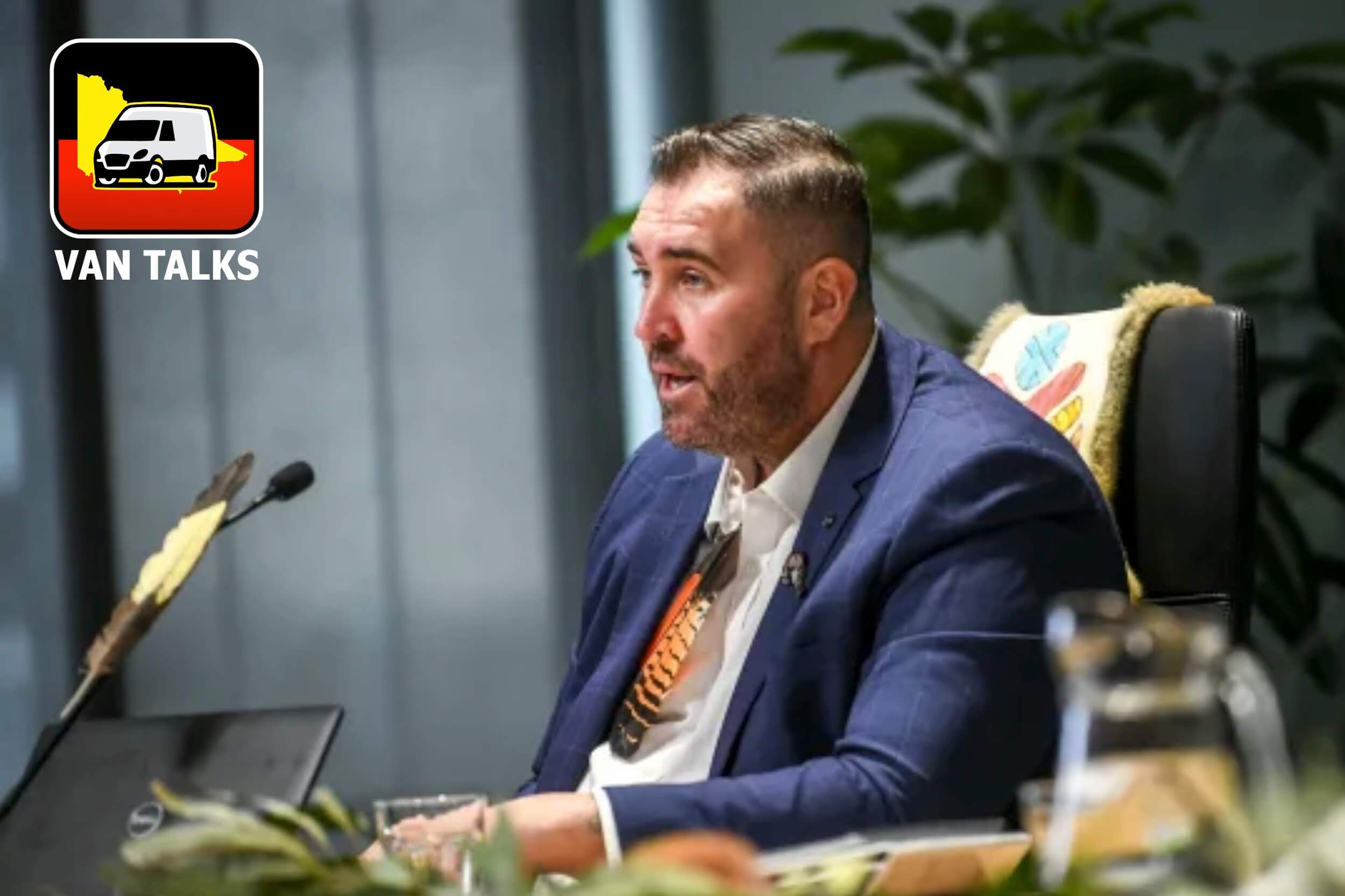
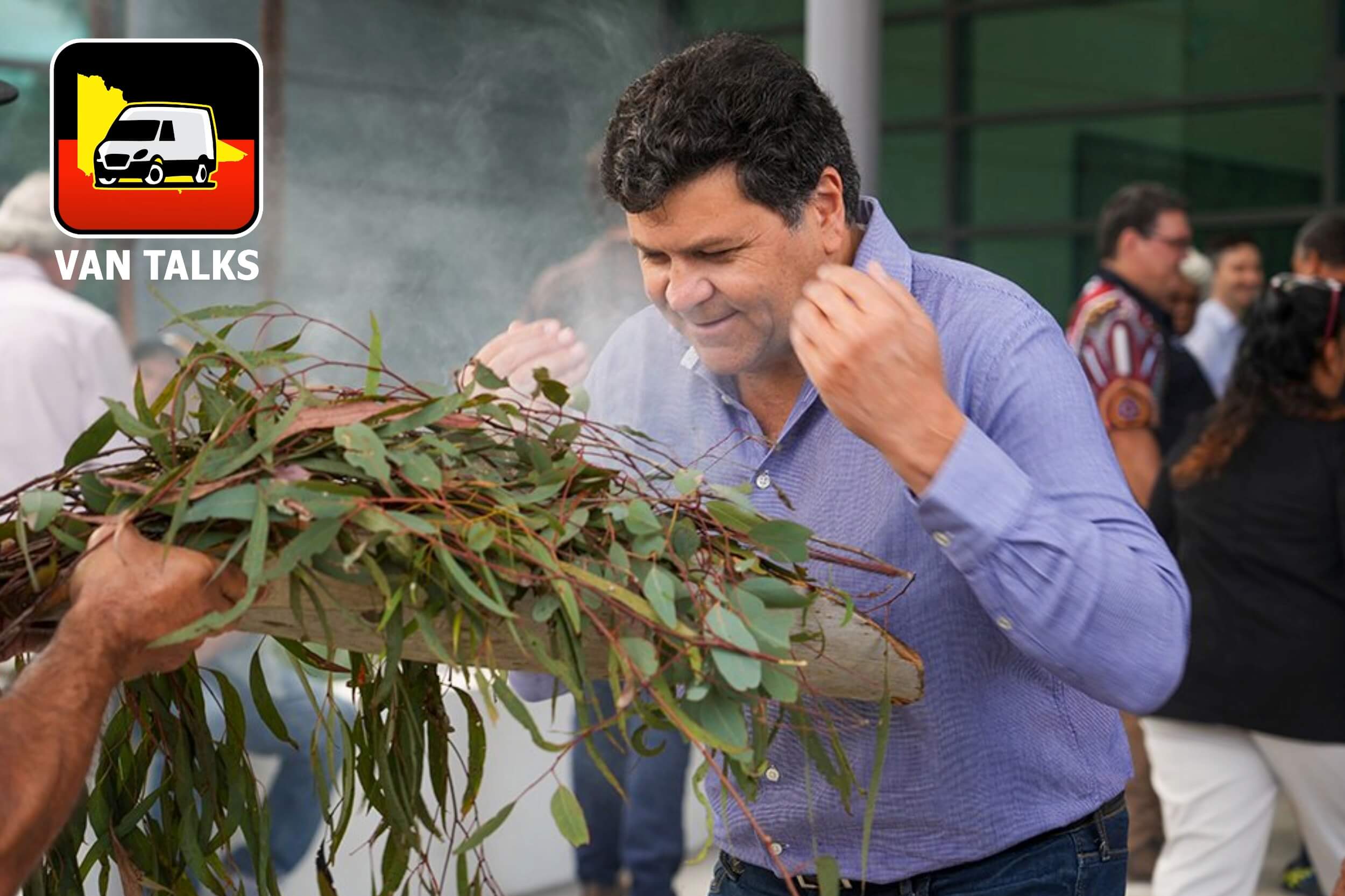
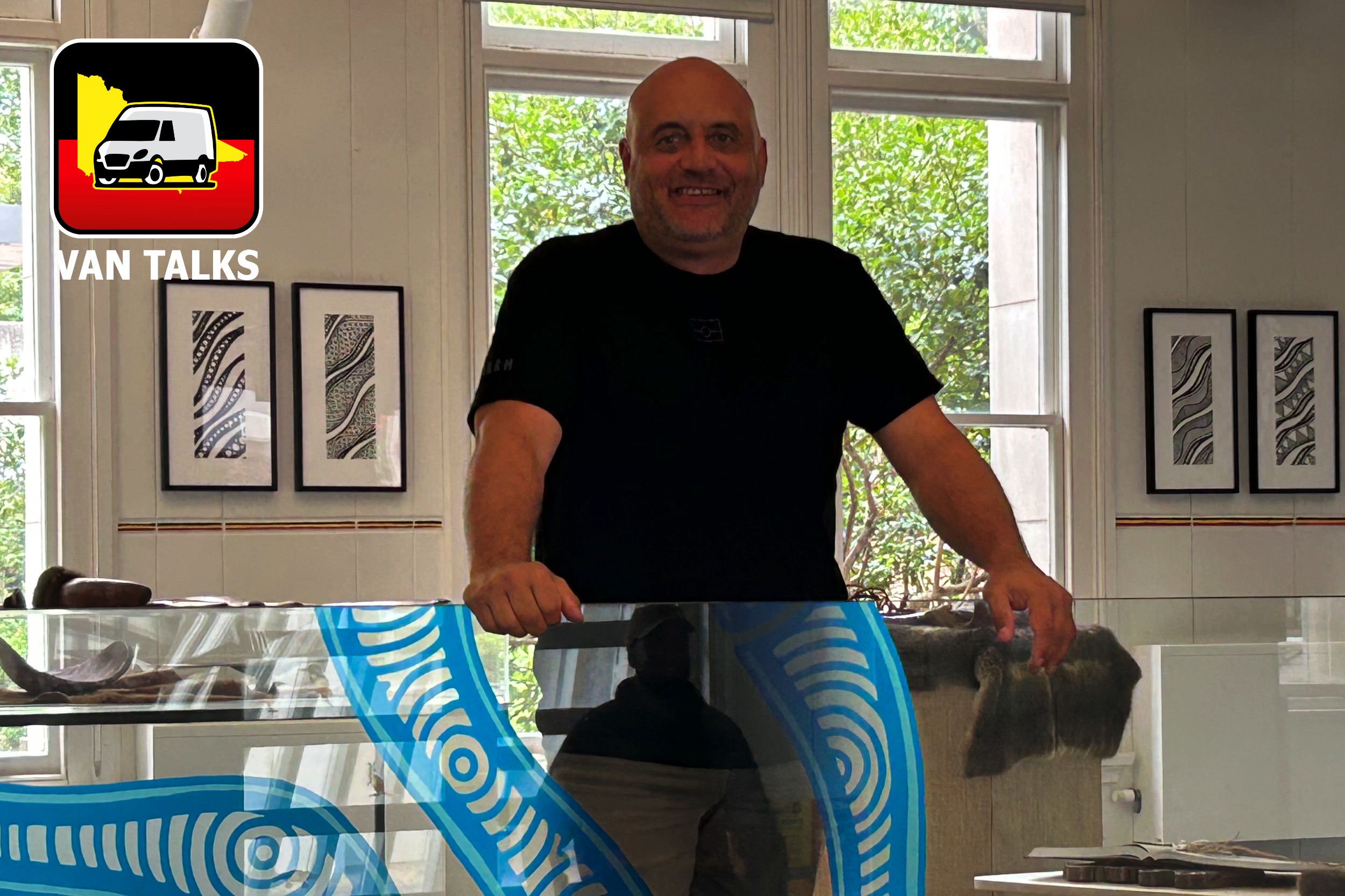
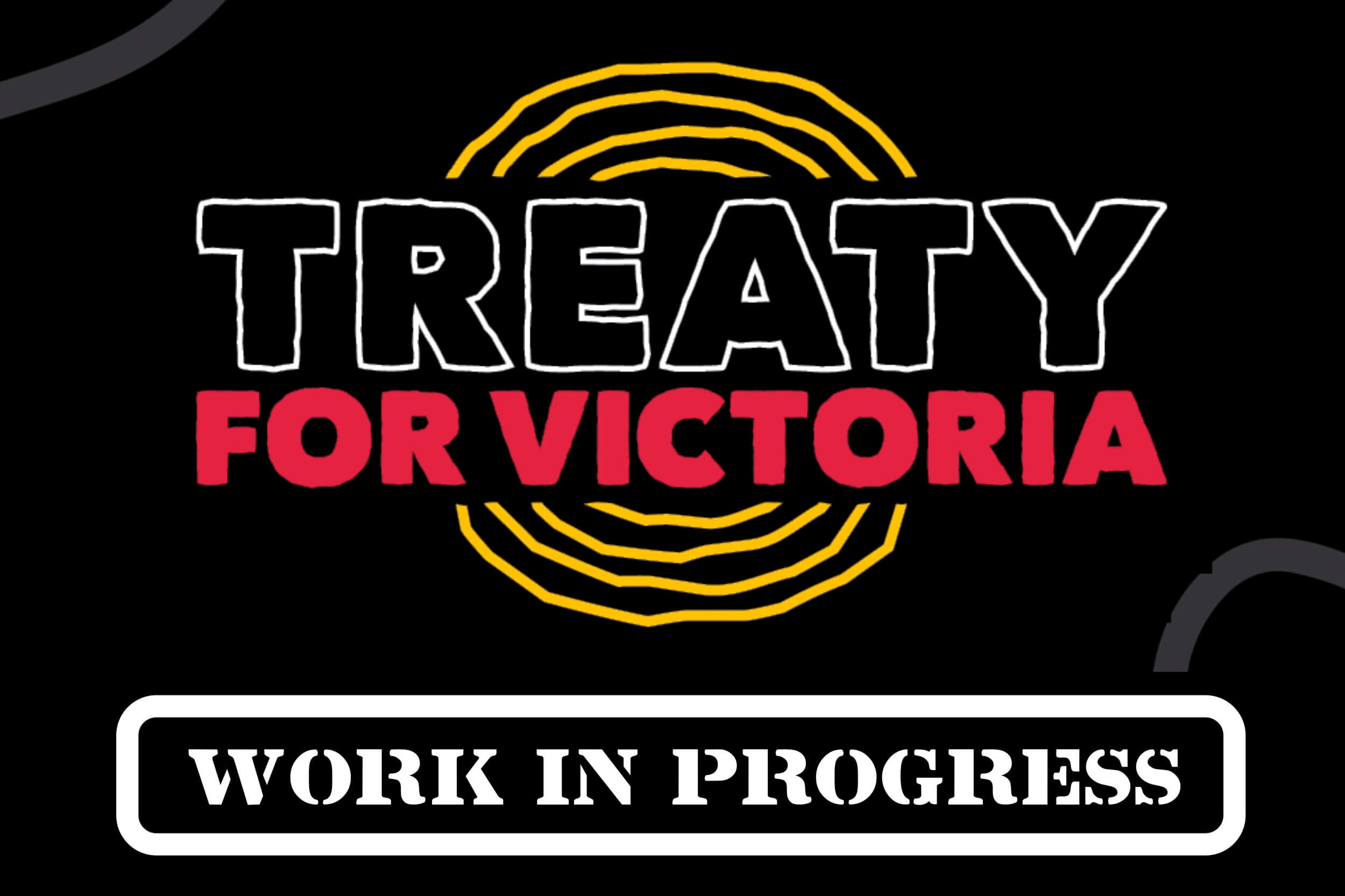
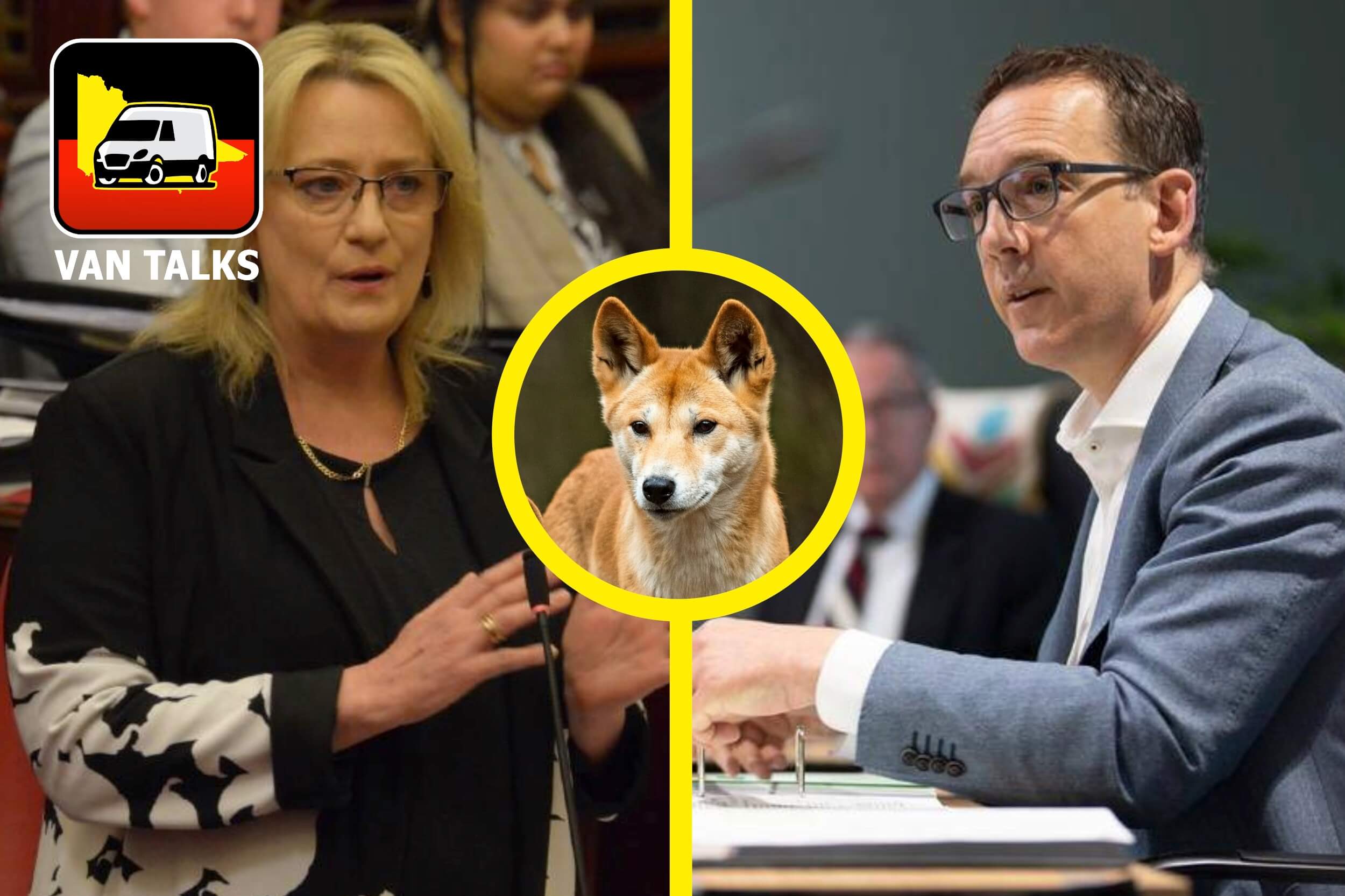

Thanks, VAN, this is a great interview with Aunty Janine.
We loved her honesty, reflections, and good practical wise-advice on how to navigate the hard stuff.
Now, more than Ever….let’s keep yarning and listening to each other.
Luv ya work!
Thanks, Nicole.
Really appreciate you listening in and commenting.
Stay strong – Charles